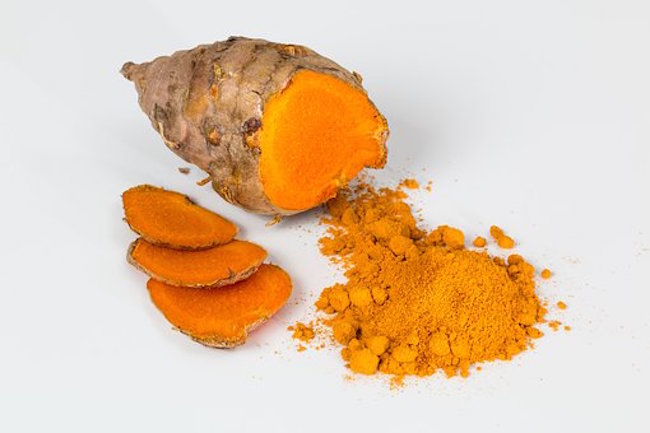Study: Turmeric component ar-turmerone can support brain regeneration By Mary Villareal for Super Foods
One of the most versatile healing spices in the world, turmeric has over 800 health benefits and is just as effective as 14 different kinds of drugs but without their adverse effects.
Turmeric has been of great interest in recent years, especially its active component curcumin, which gives it a rich golden hue. However, curcumin alone is not enough to explain the medicinal capabilities of this spice as a whole.
A study has found that another important component of turmeric, called aromatic turmerone (ar-turmerone), can be a promising candidate to support regeneration of the brain. The study by German researchers evaluated the effects of this compound on neural stem cells (NSCs), which is a subgroup of brain cells that are capable of continuous self-renewal required for brain repair.
The researchers found that when brain cells were exposed to ar-turmerone, neural stem cells increased in number, and the newly formed neural stem cells also increased the number of fully differentiated neuronal cells, which means regeneration was taking place. This effect was also observed in rats injected with ar-turmerone.
Ar-turmerone is known to reduce inflammatory response caused by activated microglia, which is associated with neurodegeneration seen in Parkinson’s disease. With this, ar-turmerone derivatives may offer new ways of treating the disease.
Parkinson’s is also a degenerative disease caused by the selective death of neurons, resulting in decreased dopamine production. While treatments such as dopamine supplements are available, there is no way to inhibit dopaminergic neurodegeneration. Previous studies also reported that the inflammatory response caused by the activation of microglia is observed in the midbrain of Parkinson’s disease patients. Thus, researchers find ar-turmerone to be a major component of turmeric that could exhibit anti-tumor and anti-inflammatory effects on the microglia.
Due to the ability of ar-turmerone to increase proliferation and mobilization of NSCs, the ability of turmeric to treat a variety of neurodegenerative diseases is huge. Alzheimer’s, dementia and other neurological disease are driven in part by neurodegenerative activity in the brain and central nervous system.
While it is still in its early stages, the potential for turmeric to mitigate or reverse some of the effects of neurodegenerative diseases is promising.
Other health benefits of turmeric
Turmeric also helps the body fight foreign agents and plays a role in repairing damages. Curcumin found in turmeric is as effective as other over-the-counter drugs in bringing down inflammation to the point of reducing the pain that people suffering from arthritis can feel in their joints.
This superfood also gained popularity for its antioxidant properties, and it is believed to have antioxidant properties so powerful that it can protect the liver from getting damaged by toxins. The antioxidant properties of turmeric provide protection against the damage that can be done to the body by unstable oxygen molecules (free radicals).
The components of turmeric also have the ability to increase the secretion of bile and the production of liver enzymes, giving the spice a liver-protective effect against the toxins in the body. Moreover, animal studies showed that turmeric can lower blood cholesterol levels and prevent the coagulation of blood platelets.
Indian spices like turmeric are also known to help with weight loss. It can help balance the stress hormones, which cause sudden weight gain, by reducing the formation of fat tissue.
Turmeric is commonly used in culinary dishes, but it can also be used as a colorant and preservative. It is safe in recommended doses, but it should not be taken in high doses by people with gallstones to avoid hindering the flow of the bile – a fluid that is made and released by the liver and stored in the gallbladder.




